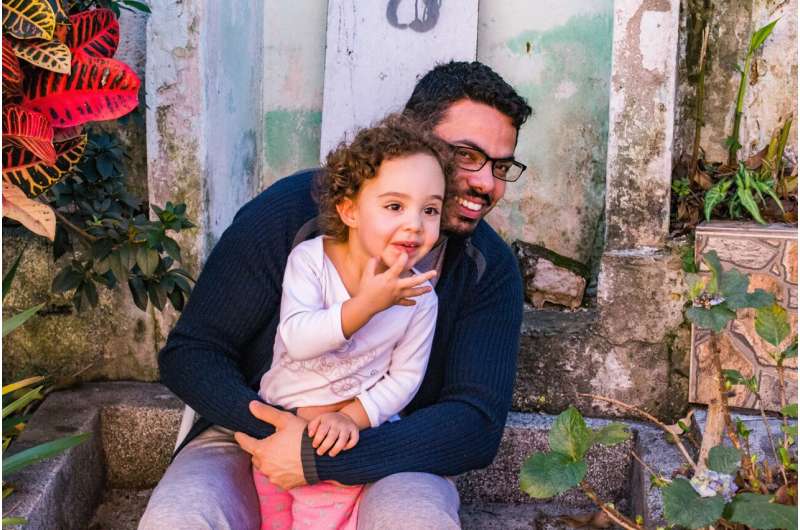This article has been reviewed according to Science X's editorial process and policies. Editors have highlighted the following attributes while ensuring the content's credibility:
fact-checked
trusted source
proofread
COVID lockdowns may have boosted opportunities for bilingual autistic children's communication development

Increased time at home due to coronavirus lockdowns may have supported the communication development of bilingual autistic children, argues a new study published in Autism & Developmental Language Impairments.
Increased parental involvement with children's learning and greater opportunities to speak their first language with caregivers, family and friends, also supported their progress, the research says. Parents reported being more "present" with their children, who were therefore more exposed to heritage languages such as Hindi.
Children were not able to engage with therapists online, but parents consulted them and acted on their advice so they had "indirect" support instead. Many parents took charge of their child's learning, using therapy and school plans as guides.
Increased video calls to relatives abroad were a common occurrence and resulted in increased exposure to heritage languages compared to pre-lockdown.
Researchers Sarah Oudet and Stephanie Durrleman from the University of Fribourg and Katie Howard, from the University of Exeter led the study. They carried out interviews with five bilingual parents of autistic children younger than 6 who lived through lockdown in France.
Sarah Oudet said, "Parents believed that their children's positive communication development during lockdown was related to increased exposure to their first language(s), and direct involvement in their children's learning programs. Lockdown was a time of constructive learning for them.
"All parents mentioned gains in their children's heritage language vocabulary. They reported that lockdown, despite complex difficulties, was an overall positive experience, as they could respond more flexibly to their children's language and learning needs."
One parent, Clara, commented that her son's language development "was like an explosion" and that "we really saw a before and an after."
Another, Sheena, remarked that lockdown was a time of rest for her son and believed this gave him the space to develop and "take his own time." She also expressed that increased time spent interacting with relatives abroad who spoke and sang in their respective first languages led to her son "picking it up."
Parents reported their children had begun to communicate or improved communication in their heritage language during the lockdown because their family had been speaking it naturally as part of day-to-day life.
Dr. Howard said, "For most participants, lockdown brought to the forefront the impact they have as parents on their children's developmental outcomes, particularly when communicating in their first language. Despite its challenges, lockdown increased their understanding of and connection with their children, as well as the perception of positive progress in their child's communication development. This study shows children with developmental conditions, such as autism, can thrive in bilingual environments.
"A more bilingual approach may provide more and higher-quality communication opportunities for the child, thus positively impacting upon the child's overall communication abilities."
The research team are now working on a scoping review, in collaboration with researchers in the UK, France and the U.S., to better understand how parent-led interventions might support the language and communication development of bilingual, autistic children.
More information: Sarah Oudet et al, Early years autism and bilingualism: An interpretative phenomenological analysis of parent perceptions during lockdown, Autism & Developmental Language Impairments (2022). DOI: 10.1177/23969415221138704





















